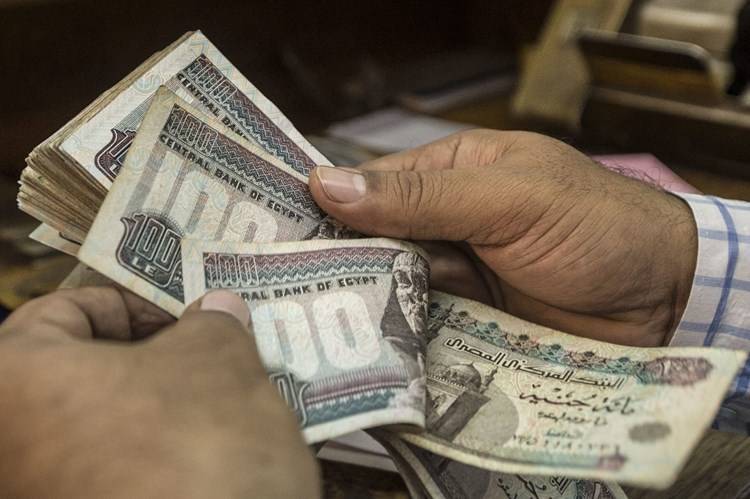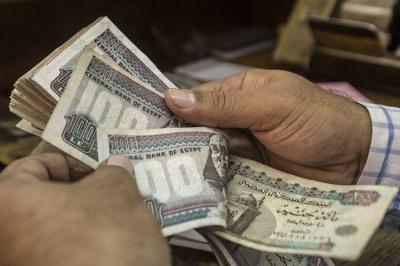Egypt risks exacerbating its record inflation and putting additional pressure on the pound unless it slows the pace of increasing the money supply, which bankers and analysts say is being used to cover the growing budget deficit. Central bank figures show that the money supply (M1), which includes circulating local currency and demand deposits in Egyptian pounds, jumped 31.9% over the year ending May 2023, up from 23.1% in the fiscal year ending June 2022 and 15.7% in the fiscal year 2021/2020.
The growth of the money supply has accelerated sharply over three years, revealing fundamental weaknesses in the Egyptian economy after it faced a series of shocks, including the COVID-19 pandemic and the war in Ukraine. Public finances are also under pressure due to a persistent foreign currency deficit and rising debts that need to be refinanced or repaid, totaling $20 billion within the next twelve months. Meanwhile, spending has significantly increased as the state seeks to implement massive infrastructure projects, including new cities and large expansions of the road network, while trying to continue offering some support in light of declining living standards.
The Ministry of Finance predicts that the budget deficit will reach 824.4 billion pounds ($26.7 billion) in the fiscal year 2024/2023, which began on July 1, up from an estimated deficit of 723 billion pounds in 2023/2022 and 486.5 billion in 2022/2021. Data from the ministry also shows that it expects total spending to rise to 2.07 trillion pounds this year from 1.81 trillion pounds in 2023/2022.
Analysts say that printing more pounds at a rapid pace increases inflation and further weakens the currency. Patrick Curran from Tillymer stated, "Given the limited capacity to obtain external financing and the banking sector's significant exposure to government debt, failure to curb the budget deficit could lead to more financing of the deficit by increasing the money supply and worsening inflation and foreign currency issues in Egypt." Neither the central bank nor the Ministry of Finance responded to requests for comment.
* Inflation Soars
The inflation rate in Egyptian cities surged to 35.7% in June, surpassing its previous record high reached in 2017, compared to 30.6% in April, while core inflation also jumped to a record level of 41%. The official exchange rate of the Egyptian pound has halved against the dollar since March 2022, and more than that in the black market. The futures market now expects the pound to drop to 40 against the dollar over the next year from around 30 currently.
A significant part of the Egyptian budget deficit is attributed to rising interest rates on domestic and external debt, which has seen a substantial increase over the past eight years. The interest bill worsened after the U.S. Federal Reserve began raising interest rates in early 2022 and as investors shunned emerging market debts. The Ministry of Finance expects that payments for servicing domestic and external debt will consume about 52.3% of its revenues in the fiscal year 2024/2023.
A $3 billion loan from the International Monetary Fund is scheduled to be disbursed over 46 months following its confirmation in December; however, the first review of the program has been delayed amid uncertainty regarding Egypt's commitment to transitioning to a flexible exchange rate for its local currency and selling state-owned assets.
* Government Borrowing
Bankers and analysts say the primary way the central bank increased the money supply is through direct lending to the government, including the purchase of government bonds. This can be observed in the central bank's announcement regarding net claims on the government, which soared to 1.48 trillion pounds by the end of May 2023 from 1.06 trillion pounds by the end of June 2022, according to central bank data.
Over the past five months, credit rating agencies Moody's, Standard & Poor's, and Fitch downgraded Egypt's sovereign debt rating. In May, Moody's placed Egypt under review for another possible downgrade, attributing it to the slow progress in asset sales.




